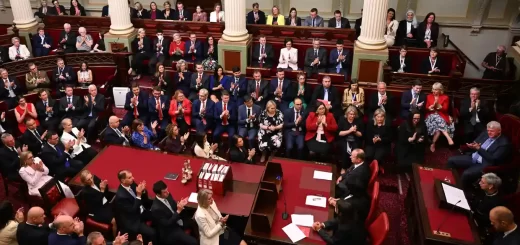Questions But No Answers
Reading Time: 2 minutes
I listened to Question Time as I drove the other day. I’d like to think that I am politically aware, yet I could not believe what I was hearing, and it made me angry.
I heard questions directed to relevant Ministers – either unapologetic Dorothy Dixers asked by government back benchers, or questions asked by members of the opposition or cross benchers. The latter questions were invariably treated as invitations to not answer the question, but instead to criticise the opposition for being responsible for current problems the government is struggling to fix.
Irrespective of the previous governments track record, I consider the government’s disdain for those asking questions and their arrogant refusal to answer as inexcusable and unacceptable.
When asked something like, why the government’s program to address the shortage of residential rental properties is running so far behind, the relevant Minister may choose to explain the program’s progress, the reasons for the delays (if indeed there are ant) and how the government proposed to overcome the set back.
Alternatively, the minister may choose not to answer any questions other than the Dorothy Dixers and be permitted to get away with it by a clearly biassed presiding officer who repeatedly ruled that Ministers were answering questions even when the response to the questions solely attacked the track record of those asking questions or of the opposition when last in power.
Perhaps we should tolerate and expect a little political by play in the form of ministers including some adverse comparisons of the other side’s track record as part of their answers. But what I heard was government ministers choosing not to answer a single question asked by the opposition and to treat every single question as an invitation to ridicule or attack.
This combative question time succeeded in making an absolute mockery of Question Time, a particularly important segment of parliamentary proceedings. Question Time provides an opportunity for parliamentarians to ask questions of Ministers of the Crown (the government). This is appropriate and important as in our system of government the government is accountable to Parliament. The broadcast of question time also enables members of the public to hear such answers and explanations.
What I heard on my car radio was not the debate and sparring of politicians, but blatant disdain for a crucial aspect of our system of government.
When permitting this to occur the presiding officers are not doing their job. They are uniquely placed to ensure that Question Time is when the Government is held to account by Parliament and ultimately by the electorate, including those of us who listen to a broadcast of parliament (by accident).
(Visited 13 times, 1 visits today)
